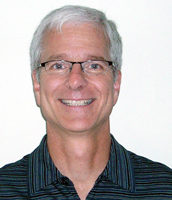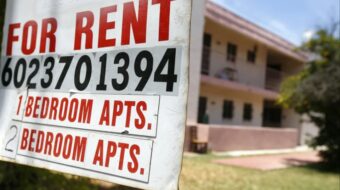DETROIT – If common sense, instead of banks, ruled the nation, a solution to the foreclosure crisis would have been found long ago.
That point was driven home over and over during a June 13 public hearing on a measure to stop the foreclosure “madness.”
Members of the Wayne County Board of Commissioners listened as speakers pressed for adoption of the Homeowner Protection and Neighborhood Preservation Act, introduced by Commissioner Martha Scott.
It would demand an independent audit of foreclosure sales to determine if fraudulent practices were used by banks and mortgage servicers, have the sheriff implement a moratorium on sales of occupied homes, and place the issue of implementing such a moratorium on the November 8, 2011, ballot.
Miguel Foster, director of the United Auto Workers Civil Rights and Community Services Department, told commissioners his union and its president, Bob King, support this act. Foster noted that in 2010, there were 100,000 foreclosures in Michigan and one-fourth of those were in Wayne County, where Detroit is located. He called it an “economic and human catastrophe” affecting many of his union’s members.
Many at the hearing expressed outrage at the fact that banks have more of an incentive to force people out of their homes than to keep a roof over the heads of families and children.
Rev. Ed Rowe of Central United Methodist Church in Detroit explained how it works. A foreclosed home once valued for $300,000 might now be worth $100,000 but the bank is paid the larger amount in the foreclosure process, he said. Thus, he pointed out, banks are not motivated to modify the loan as they collect more by evicting.
He called such bank actions “criminal” because even after they collect the $300,000 people are still thrown out of their homes and the banks assume possession.
Rowe emphasized that banks were misusing “our” money as most loans are government-guaranteed and banks were given a $700 billion bailout with our tax dollars. In effect we are “foreclosing on ourselves,” he said.
Attorney Vanessa Fluker said banks trained their lenders to inflate the assets and income of those targeted for high-interest predatory loans. She charged the banks with engaging in “fraud,” since they knew the loans could not be repaid. “We need to stop the madness and rebuild our communities and homes,” she said.
Ted Phillips, executive director of the United Community Housing Coalition, a nonprofit housing assistance organization, said action by an attorney can sometimes save a home but it is a very time-consuming process.
He gave stark numbers: Forty thousand foreclosure cases are filed each year in district court. Besides himself, his organization has three part-time lawyers to handle the cases of those fighting foreclosure. Even adding the few attorneys at Legal Aid, the numbers of lawyers available to help foreclosure victims are dwarfed by the large number of lawyers representing the banks and mortgage companies.
Groups like his cannot do it alone, Phillips said. Urging the commissioners to adopt the Homeowner Protection Act, he said, “We need your help.”
Could the situation get worse? Yes, said Marilyn Mullane, executive director of Michigan Legal Services.
She reported that Republicans in at the state legislature in Lansing are pushing bank-friendly bills that would speed up the foreclosure process.
“Can you imagine what we are looking forward to?” she asked.
The bills would give Michigan the distinction of becoming the first state to quicken the removal of people from their homes.












Comments